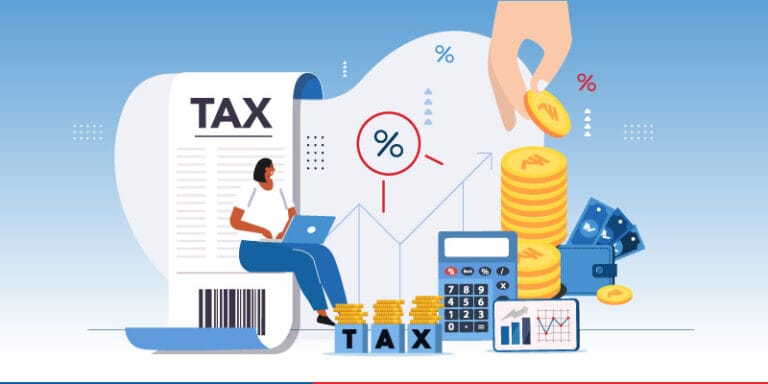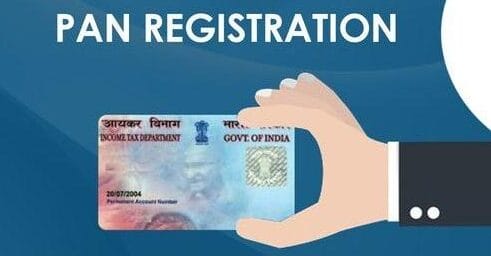Taxation services in India encompass a wide range of activities aimed at ensuring compliance with the country’s tax laws and regulations. These services are essential for individuals, businesses, and organizations to manage their tax obligations efficiently and legally. Here’s a detailed overview of taxation services in India:
Types of Taxation Services
1. Direct Tax Services
- Income Tax: Assistance with the preparation and filing of income tax returns for individuals, businesses, and organizations. This includes tax planning, advisory services, and representation before tax authorities.
- Corporate Tax: Specialized services for corporate entities to manage their tax liabilities, including tax planning, compliance, and advisory services.
- Tax Audits: Conducting audits as mandated under the Income Tax Act, ensuring accuracy and compliance in the filing of tax returns.
- Transfer Pricing: Advisory services to manage transfer pricing regulations, documentation, and compliance requirements.
2. Indirect Tax Services
- Goods and Services Tax (GST): Comprehensive services related to GST registration, return filing, compliance, and advisory. This includes handling GST audits, appeals, and litigation.
- Customs and Excise: Assistance with compliance and advisory services related to customs duties and excise taxes, including classification, valuation, and refunds.
- Value Added Tax (VAT): Though replaced by GST in most cases, certain transactions might still be subject to VAT laws. Services include compliance and advisory for such transactions.
3. International Taxation
- Cross-Border Taxation: Advisory services on cross-border transactions, double taxation avoidance agreements (DTAA), and international tax compliance.
- Expatriate Taxation: Tax planning and compliance services for expatriates working in India, including income tax return preparation and advisory.
4. Tax Advisory and Planning
- Strategic Tax Planning: Long-term and short-term tax planning strategies to minimize tax liabilities and optimize tax benefits.
- Transaction Advisory: Tax implications and advisory services for mergers, acquisitions, restructurings, and other significant transactions.
5. Compliance and Representation
- Tax Compliance: Ensuring timely and accurate filing of all required tax returns and forms.
- Representation Services: Representing clients before tax authorities, including handling assessments, appeals, and litigation.
Key Aspects of Taxation Services
1. Tax Return Preparation and Filing
- Ensuring accurate and timely preparation and filing of tax returns to comply with the various tax regulations in India.
2. Tax Planning and Advisory
- Developing strategies to minimize tax liabilities through effective tax planning and providing advisory services on various tax-related matters.
3. Tax Audits and Assessments
- Conducting tax audits as per regulatory requirements and assisting with tax assessments conducted by tax authorities.
4. Transfer Pricing
- Ensuring compliance with transfer pricing regulations and preparing the necessary documentation to support the pricing of cross-border transactions.
5. GST Compliance and Advisory
- Providing comprehensive services related to GST, including registration, return filing, and advisory on GST laws and regulations.
6. International Taxation
- Advising on tax implications of cross-border transactions and ensuring compliance with international tax laws and treaties.
7. Tax Litigation Support
- Representing clients in tax disputes and litigation before various tax authorities and appellate bodies.
Benefits of Taxation Services
- Compliance Assurance: Ensures that individuals and businesses comply with all relevant tax laws and regulations, reducing the risk of penalties and legal issues.
- Tax Savings: Through effective tax planning and advisory, individuals and businesses can optimize their tax liabilities and maximize tax savings.
- Risk Mitigation: Identifies and mitigates potential tax risks, ensuring a smoother tax compliance process.
- Strategic Decision-Making: Provides valuable insights and advisory on tax implications, aiding in strategic business decision-making.
- Expert Representation: Offers professional representation before tax authorities, enhancing the likelihood of favorable outcomes in tax disputes and assessments.
Taxation services in India are crucial for managing tax compliance and optimizing tax liabilities for individuals, businesses, and organizations. These services encompass a broad spectrum of activities, including tax return preparation, planning, advisory, audits, and representation. By leveraging professional taxation services, clients can ensure compliance, mitigate risks, and achieve strategic tax benefits.
At Ujjwal Gupta & Co
We, at Ujjwal Gupta & Co, are dedicated to delivering personalized, high-quality solutions tailored to meet your financial and business needs. With our team of professionals and a client-first approach, we ensure that every challenge is met with expert guidance and strategic insight.
We are dedicated to ensuring your business’s success by providing best service practice available in the industry and that too at a cost effective pricing. Our team of experts is excited to work with you and provide the support you need to thrive in the Indian business landscape.
Our only motive is to create Value for Our Clients and accordingly, have a Client Value System at our Office.
So, let us help you navigate the complexities of finance and compliance, empowering you to focus on what matters most — growing your business. Get in touch today, and take the first step towards financial peace of mind.
Taxes in India are broadly classified into:
- Direct Taxes: These include taxes levied directly on income, such as Income Tax and Corporate Tax.
- Indirect Taxes: These are taxes levied on goods and services, such as the Goods and Services Tax (GST), Customs Duty, and Excise Duty.
Income Tax is a direct tax imposed on the income earned by individuals, Hindu Undivided Families (HUFs), and businesses. Any person or entity earning an income above the prescribed threshold is required to pay income tax. This includes:
- Salaried individuals
- Business owners
- Freelancers
- Corporate entities
Goods and Services Tax (GST) is an indirect tax on the supply of goods and services in India. It is a destination-based tax, meaning it is collected at the point of consumption. GST has subsumed many indirect taxes like VAT, Service Tax, and Central Excise. It is categorized into:
- CGST (Central GST) for transactions within a state.
- SGST (State GST) for transactions within a state.
- IGST (Integrated GST) for interstate transactions and imports/exports.
Tax Deducted at Source (TDS) is a system where the person making certain payments, such as salaries, interest, rent, or professional fees, deducts a percentage of the payment as tax before making the payment. The deducted amount is then deposited with the government on behalf of the person who received the payment. TDS applies to both individuals and businesses.
The due date for filing ITR varies based on the type of taxpayer:
- Individuals (not requiring an audit): July 31st of the assessment year.
- Businesses (requiring an audit): October 31st of the assessment year.
- For companies and LLPs, the due date is typically September 30th of the assessment year if an audit is required.
The Income Tax Department has prescribed several ITR forms, and the correct form depends on the taxpayer’s income source. Common forms include:
- ITR-1 (Sahaj): For individuals with income from salary, one house property, and other sources.
- ITR-2: For individuals and HUFs with income from multiple house properties or capital gains.
- ITR-3: For individuals and HUFs with income from business or profession.
- ITR-4 (Sugam): For presumptive income under Section 44AD or 44AE.
- ITR-6: For companies, except those claiming exemption under Section 11 (charitable or religious purposes).
Individual income tax slabs in India vary based on age and income levels. For individuals below 60 years, under the new regime (without deductions):
- Up to ₹2.5 lakh: Nil
- ₹2.5 lakh to ₹5 lakh: 5%
- ₹5 lakh to ₹10 lakh: 20%
- Above ₹10 lakh: 30% The old regime allows for deductions and exemptions but has different tax rates.
Advance Tax is the tax paid in installments during the financial year, instead of paying the entire tax liability at the end of the year. It applies to individuals and companies with a total tax liability of ₹10,000 or more after TDS. Taxpayers are required to pay advance tax in four installments:
- 15% by June 15
- 45% by September 15
- 75% by December 15
- 100% by March 15
Penalties for late filing of ITR depend on the date of filing:
- If filed after the due date but before December 31st, a penalty of ₹5,000 is imposed.
- If filed after December 31st, the penalty increases to ₹10,000.
- If the total income is below ₹5 lakh, the maximum penalty is capped at ₹1,000.
There are several tax-saving instruments under Section 80C and other sections of the Income Tax Act. Popular options include:
- Public Provident Fund (PPF)
- National Savings Certificates (NSC)
- Employee Provident Fund (EPF)
- Equity-Linked Savings Scheme (ELSS)
- Life Insurance Premiums
- National Pension System (NPS) under Section 80CCD
- Health Insurance Premiums under Section 80D.
Why Choose UGC?

Client Centric Approach
Client is the key driver of our service offerings. Our approach to service offerings is based on a client centric and customized approach. Our specialized teams are a mix of technical and industry experience in order to serve clientele for their specific needs.

Team Work
We have built high performing teams supported by strong work ethic. Our team is a mix of experts, professionals and support staff from technical and varied academic, social and ethnic backgrounds. We believe diversification plays a vital role in motivating the team.

Quick Turnaround
We always endeavour for a quick turnaround time to serve our clientele. We are supported by an experienced and client focussed support teams to offer timely services to our clientele. In case of any business exigencies and time sensitive service requirements, you can always count on us.

Open Communications
We believe that open communication is the core principle in order to demonstrate trust, build long lasting and valuable relationships with clientele. We are committed to ensuring transparency in communication, service offerings and delivery. We provide professional services to our clients.

Client Value System
We value for the Client time and thus, we offer services that are value for money. Quality professional services are provided to our clients, so that they are able to achieve their desired results. We are a quality trademark in the industry and thus, our clients count on us always.

Quality in Delivering Work
Our service offerings are driven by quality and reviews at every level. We strive to provide a qualitative and value-added delivery to our clientele. At all times, we endeavour to provide exceptional client service by meeting client expectations and driving client satisfaction.



















